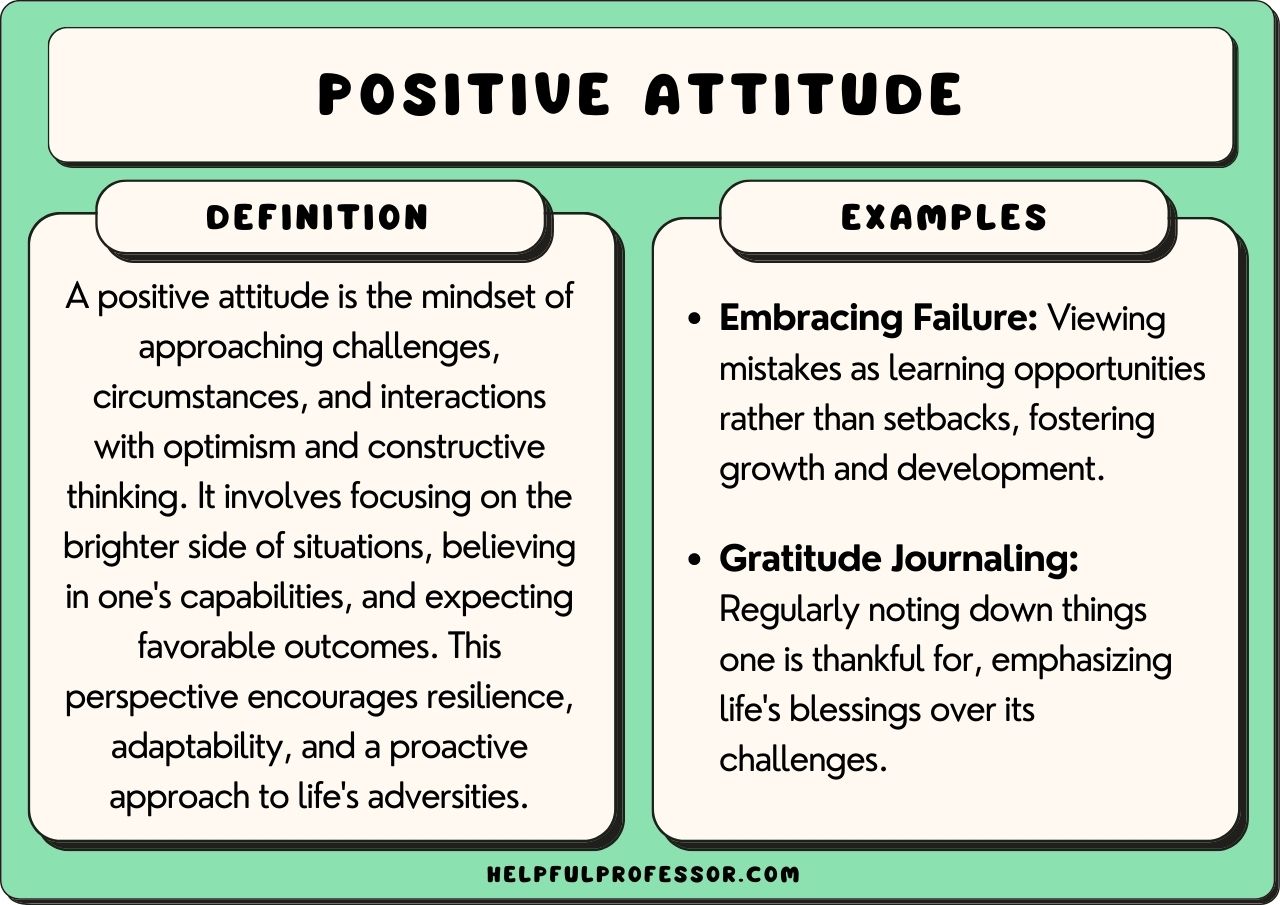How Does Having A Positive Attitude Help You Be Successful

In today’s relentlessly competitive landscape, the edge isn’t just about skills; it's about mindset. A growing body of evidence reveals a potent correlation between a positive attitude and tangible success.
This article explores how cultivating optimism fuels achievement, impacting everything from career advancement to personal well-being.
The Science of Optimism: More Than Just Happy Thoughts
Positive psychology, spearheaded by Dr. Martin Seligman at the University of Pennsylvania, has moved beyond mere anecdotal evidence. Studies now demonstrate the concrete benefits of an optimistic outlook.
Research shows that optimists, when facing challenges, are more likely to persist, exhibiting greater resilience and problem-solving skills. This directly translates to improved performance and increased success rates in various fields.
A meta-analysis published in the Journal of Personality and Social Psychology revealed that optimism is significantly associated with higher levels of achievement and life satisfaction.
Boosting Performance: Workplace Advantages
In the workplace, a positive attitude acts as a catalyst for collaboration and innovation. Employees with a positive disposition tend to be better team players, fostering a more productive and supportive environment.
A 2019 study by Gallup found that engaged employees, often characterized by a positive outlook, are more productive and contribute significantly to a company’s bottom line.
This translates into higher sales figures, improved customer satisfaction, and reduced employee turnover, according to the Gallup research.
Leadership and Influence: Inspiring Others
Leaders who cultivate a positive attitude are more effective at motivating and inspiring their teams. Their optimism becomes contagious, fostering a culture of growth and innovation.
Research from Harvard Business Review highlights that leaders who demonstrate positive emotions build stronger relationships with their employees. This also create more trust and loyalty.
This, in turn, leads to increased employee engagement and a more collaborative and productive work environment.
Overcoming Obstacles: Resilience in the Face of Adversity
A positive attitude isn't about ignoring challenges; it's about how you approach them. Optimists tend to view setbacks as temporary and specific, rather than permanent and pervasive.
This perspective allows them to bounce back from adversity more quickly and maintain momentum toward their goals.
A study in the Journal of Abnormal Psychology demonstrated that individuals with a positive outlook exhibited greater resilience in the face of stressful life events.
Practical Steps: Cultivating a Positive Mindset
Developing a positive attitude isn't an innate trait; it's a skill that can be learned and cultivated. There are several practical strategies you can implement to shift your mindset.
Practicing gratitude, focusing on your strengths, and reframing negative thoughts are powerful techniques. These techniques helps you to promote a more positive outlook.
Engaging in acts of kindness and surrounding yourself with positive influences also contribute to a more optimistic mindset.
"The greatest discovery of all time is that a person can change his future by merely changing his attitude." - Oprah Winfrey
The Ongoing Impact: A Continued Focus on Positivity
The research on the benefits of a positive attitude continues to evolve. There is an increasing focus on understanding the underlying mechanisms and exploring its impact on various aspects of life.
Further studies are investigating the role of optimism in health and well-being, as well as its influence on social relationships and community engagement. This helps to give an in-depth understanding of the concept.
Organizations and individuals are increasingly recognizing the importance of cultivating a positive mindset. This is to unlock potential and achieve lasting success.


















